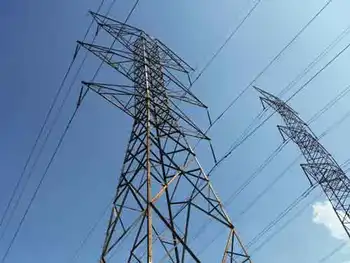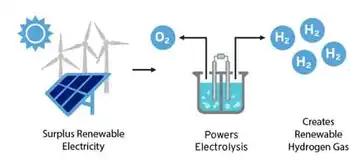Canada losing out on green energy: Pembina Institute
HALIFAX, NOVA SCOTIA - Canada continues to lag behind the rest of the world in the use of renewable energy and could fall further, warns a senior policy and technical analyst with the Pembina Institute in Ottawa.
Tim Weis said there is big uncertainty about the future of renewable energy in this country since federal incentives for renewable energy projects are about to run out this fall.
The big concern is that the Obama administration has pledged to spend almost $80 billion on renewable energy and new technologies, he said after speaking to delegates attending the fourth annual renewable energy conference in Halifax.
This U.S. investment is over six times more on a per capita basis than what was announced in CanadaÂ’s most recent federal budget, he said.
"There really is a danger of money and capital and investment going south of the border."
The U.S. market is more attractive to wind, solar, and biomass producers at this stage, he said.
"We are going to be losing out on investment, weÂ’re going to be losing out on companies going to the U.S., which is just more attractive these days. Once these companies leave, they are difficult to get back," he said.
Nova Scotia wind developer Dan Roscoe of Scotian WindFields agrees. He said it will be difficult for Canadian wind developers to compete for turbines and financing when American counterparts have access to billions of dollars of incentives.
"It is a disadvantage for us."
Scotian Windfields has teamed up with SkyPower to construct a 30-turbine wind farm in Digby, which must still get regulatory approval.
Malcolm Lodge, president of Charlottetown turbine manufacturer Entegrity Wind Systems, said there is not much in the way of government incentives in Canada for renewable energy.
"Hopefully, it will come. ThatÂ’s a double-edged sword though. When customers learn there is money coming, they stop buying. People are waiting to see just how much they will be able to get in grants and subsidies before they decide to purchase."
Despite the challenges, Mr. Lodge said the public demand continues to grow for alternative sources of energy.
Canada is late in the game compared to Europe and the U.S., said Mr. Weis, explaining federal incentives that triggered the interest in Canada started about 2002. In the past decade, Canada has added 2,400 megawatts of renewable energy to power grids, he said. However, there are no national standards on how much electricity should come from renewable sources.
Europe has been on the leading edge of integrating renewable energy, he said. For example, on some days, Spain is able to generate 40 per cent of its electricity from wind.
Related News

Britain's National Grid Drops China-Based Supplier Over Cybersecurity Fears
LONDON - Britain's National Grid has started removing components supplied by a unit of China-backed Nari Technology's from the electricity transmission network over cybersecurity fears.
The decision came in April after the utility sought advice from the National Cyber Security Center (NCSC), a branch of the nation's signals intelligence agency, Government Communications Headquarters (GCHQ), the newspaper quoted a Whitehall official as saying.
National Grid declined to comment citing "confidential contractual matters." "We take the security of our infrastructure very seriously and have effective controls in place to protect our employees and critical assets to ensure we can continue to reliably, safely and…




